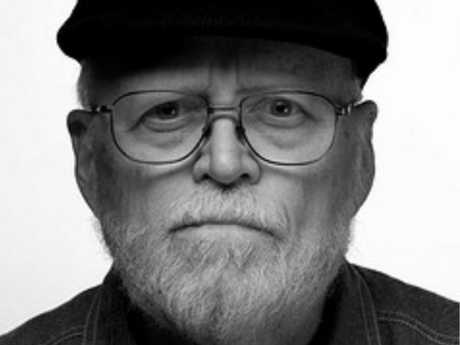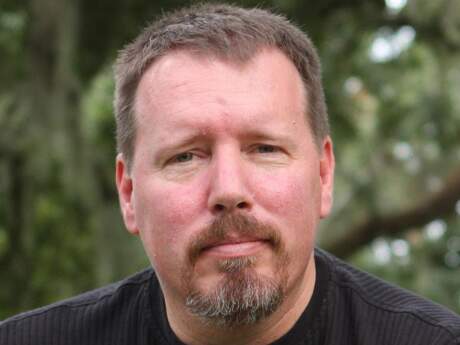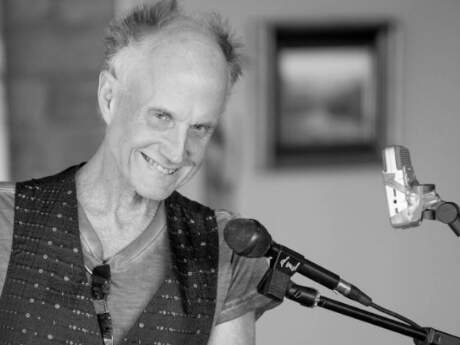Red, White, & Blue
Ron Silliman

Do you value the examination of the political in poetry? If so, what experience(s) taught you its importance?
The simplest answer to this would be one word: Vietnam. But a truer, fuller answer would have to do with my having grown up in one of -- if not the -- poorest families in my community and my having worked for many years with prisoners and as a housing activist with very poor residents in San Francisco's Tenderloin.
If you write about politics frequently, what issues, difficulties, advantages and disadvantages do you negotiate? Which poets do you draw on when conducting such negotiations?
The Objectivists, Charles Olson, Robert Duncan, my peers among the language poets, esp. Barrett Watten, Charles Bernstein, Lyn Hejinian, Ted Pearson, Erica Hunt, Rae Armantrout, Tom Mandel, Carla Harryman, Kit Robinson, Alan Bernheimer, Bruce Andrews, Harryette Mullen, Jackson Mac Low .... that's a "just for starters" list.
What 'responsibility' does an artist have to artistically engage his or her own politic?
It is like one's sexuality, one's race, one's heart, an aspect of all we do. Either be true to who you are or why bother at all?
In 2008, Horace Engdahl, the secretary of the Nobel prize jury, wagged his finger at American writing saying that "[American writers] don't really participate in the big dialogue of literature. […] That ignorance is restraining." What do you think? How have recent American poets engaged with or neglected the so-called 'big dialogue' of literature? Is this 'big dialogue' a political one?
In part, but so many writers in the US carry the blinders of the hegemon wherever they go. I was very heartened by Engdahl's words, which I felt were quite accurate with regards to the novel.
Is there room for romantic or rugged individualism in political poetry (as opposed to a capacious perspective of Whitman or other past poets)? If so, where is its place?
Rugged individualism is the poetics of Ron Paul—either one recognizes it (and embraces it if one is so inclined) or one denies it (and in so doing ends up being incoherent, a bad state for a poet).
Where do you draw the line between poetry and propaganda? What is the purpose of such a line? Should today's poet be concerned with editorial censorship?
Propaganda is a political poetry of agreement, and tends to have little value over time.
Censorship is always an issue. This includes self-censorship.
What are your thoughts on shifts in the state of the political voice in contemporary poetry, from the early modernist to the beat poets and black arts movement, to today? Where are we now? Where are we going?
The poetry of early modernism was for the most part a poetics of elitism and had much to do with the uneven distribution of literacy. That was either gone or anachronistic by 1940, which was over 70 years ago. Those poets who continue in this mode are sad indeed, both as people and to read. But I feel that much of American poetic life has been only minimally better politically since then. One must begin with where one is, wherever that may be. Capitalism fails every 70 or so years (think Kondratiev waves), at which point alternatives flood in from the left (socialism) and the right (fascism), which is exactly where we are today. FDR saved capitalism for two generations by adding a dollop -- not much more -- of socialism. Since then, capital (which is the most powerful social force on the planet) has been eroding its constraints -- having done so successfully, it has plummeted right back into crisis. What worries me most right now is the failure to understand where we are historically and that if we do not stop the ongoing onslaught from various modes of neo-fascist tendencies (of which the GOP has at least three alternative proponents running for president), the American empire -- which has been in steady decline now for 50 years -- will cause this country to look a lot more like the Europe of the past century, complete with division & death camps, than the Grant Wood hologram we were force-fed as children.
***
Ron Silliman was a political organizer, lobbyist, market analyst and executive editor of the Socialist Review. He now devotes himself full-time to his writing and lives in Chester County, Pennsylvania. He presently is working on several sections of Universe, a new longpoem that is just getting under way. Silliman is the author, co-author or editor of some 30 books and Silliman's Blog has received over 3 million visits.
Published September 2012


